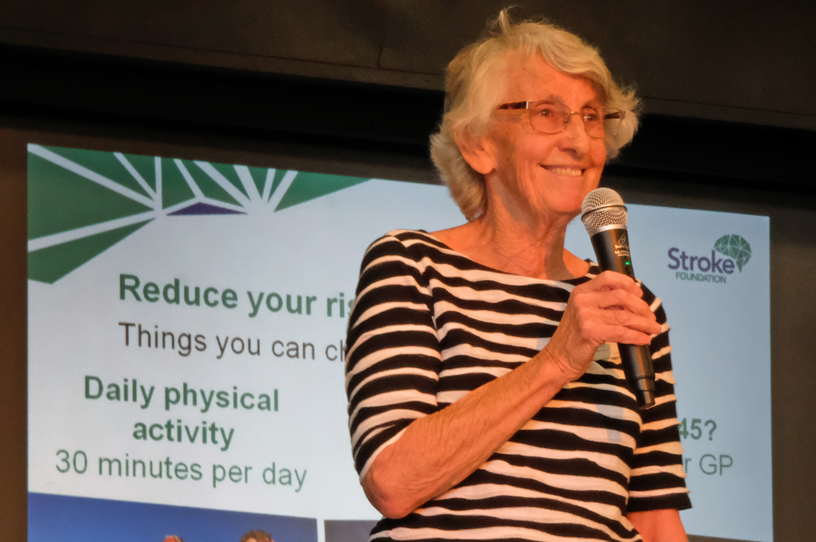The Royal Commission into Aged Care Quality and Safety’s interim report has confirmed everybody’s worst fears about the poor care, neglect, and abuse that has been occurring unchecked in Australia’s aged care system for years.
AMA President, Dr Tony Bartone, said today that the Royal Commission’s report is a call for action – urgent action.
“Care can’t wait. We have to put the care back into aged care,” Dr Bartone said.
“The Royal Commission has exposed numerous examples of neglect, abuse, mismanagement, under-resourcing, and under-funding in aged care.
“It has also given us insights into the failures of successive Governments to fix the system.
“The background papers and reports produced by the Royal Commission have highlighted how Australia compares poorly internationally in terms of staffing in aged care, and it makes for troubling reading.
“Tragically, it has told us that in a single year an estimated 16,000 people died waiting for a home care package.
“The wording of the interim report comes as no surprise to AMA members who work in aged care and witness the aged care crisis daily.
“A lack of funding, low support from providers, and little action by Government has led to the current crisis.”
Dr Bartone said the AMA welcomes the call for immediate action to reduce the waiting times for home care packages.
“The AMA has been calling for this for some time,” Dr Bartone said.
“Funding is needed to clear the backlog of almost 120,000 people waiting for a home care package at their approved level. It is unacceptable that people have to wait for over 12 months for a Level 4 home care package.
“A call for the reduction of over-reliance on chemical restraints is welcomed by the AMA.
“Our longstanding position is that restrictive practices should always be considered a last resort – where and when any potential risk or harm caused by the restraint itself is less than the risk of the patient not being restrained.
“The decision on the use of restraints should always be made on a case-by-case basis.
“However, there must be a balance between the need to ensure the older person’s safety, and the safety of those around them, including other residents and their families and friends, while respecting their right to dignity and self-determination, including acknowledging previously expressed or known values or wishes.
“But clearly, as part of reducing the inappropriate use of chemical restraints in aged care, there must be sufficient numbers of staff and an appropriate mix of skilled staff available at all times.
“Registered nurses must be available on site 24/7 to ensure appropriate care, including the safe administration of medicines, is provided for elderly and frail patients.
“Staff must be trained to better care for residents living with dementia. Currently, that training is inadequate.
“There is plenty of evidence that improved dementia management and behavioral training for nursing and personal care staff will lead to reduced prescription of antipsychotic medications.
“Staff also need training to understand the ethical, medical, and legal issues and responsibilities when using restraints. The AMA has called for a mandatory minimum qualification for personal care attendants.”
Dr Bartone said that a safe and quality skills mix of medical, nursing, and care staff, and minimum staff-to-resident ratios must be priorities.
“It is totally unacceptable that in 21st century Australia more than half of all aged care residents live in facilities that have unacceptable staffing levels,” Dr Bartone said.
“We have a sad and unacceptable situation where more than 80 per cent of staff say they don’t have time to provide social and emotional support to the residents.”
The AMA also welcomes the call to stop the flow of younger people entering aged care. Aged care facilities are not appropriate places for younger people.
Dr Bartone said that doctors who visit aged care facilities and witness the environment experienced by young people consider it demeaning and humiliating.
“The Government must urgently explore other options and provide alternatives for younger people with disabilities who are currently residing in residential aged care facilities,” Dr Bartone said.
“The Royal Commission has done an excellent job bringing to light the national shame of what is happening in aged care. We applaud the work of the Commission – but we cannot wait another year or more to start to fix things.
“The Government must act now – immediately. It cannot hide. No ifs, no buts, no more excuses. Our parents, our grandparents, our friends and loved ones deserve better. Care can’t wait.”







/regulation-and-prequalification-(rpq)/50960620707_59849e65eb-k.tmb-768v.jpg?sfvrsn=8ea94951_1)
